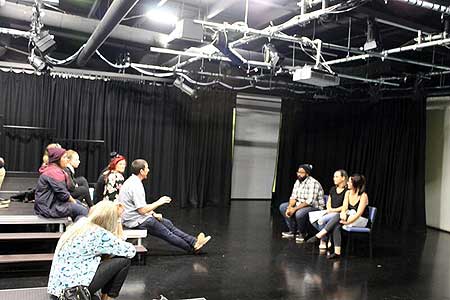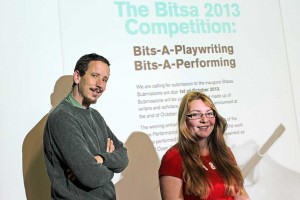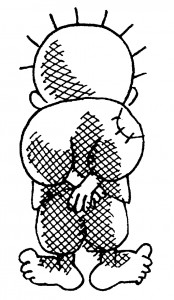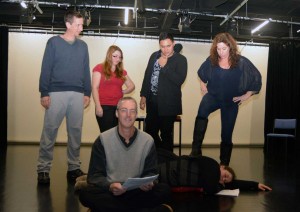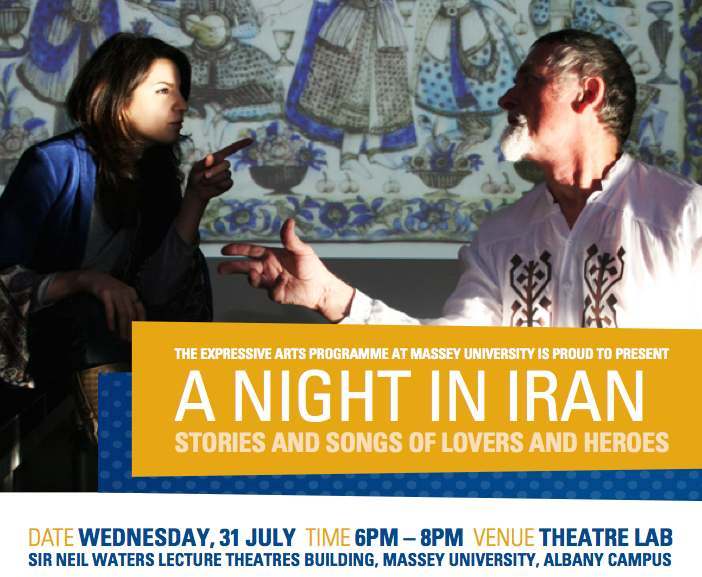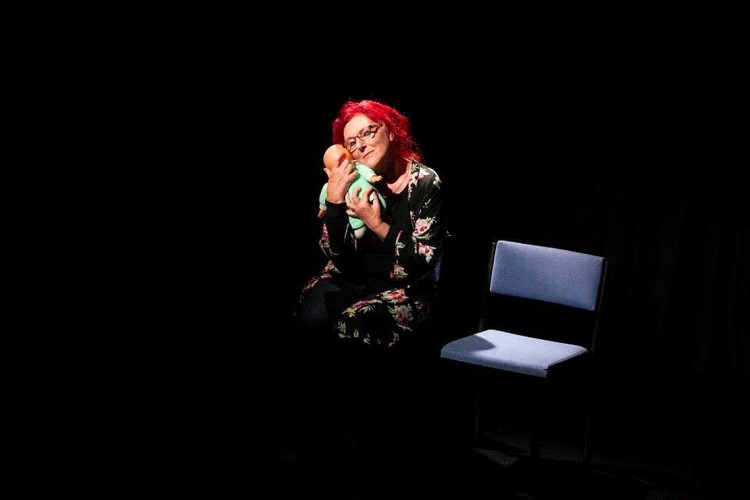
Sue Wilson plays the character Betty, who re-establishes a connection with her ‘memory’ (photo/Eilidh Penman)
Massey University theatre and media students have been using their creative talents for social good by exploring new ways to communicate with people who have dementia, as well as helping others to better understand the condition.
Students at Massey’s Auckland campus have developed short films, music videos and a theatre performance in partnership with a nearby residential care facility, Aria Gardens, in Albany. The works were created as part of a ground-breaking new paper led by applied theatre specialist Dr Rand Hazou.
One of the four groups on the course explored the use of doll therapy for residents experiencing ‘sun-downing’ – the mid to late-afternoon period when some dementia sufferers feel agitated and confused. Another used TimeSlips – an imaginative storytelling technique that doesn’t rely on memory, and is suited to engaging with some of the residents who have dementia.
Dr Hazou says the Creativity in the Community paper – offered through the School of English and Media Studies to Bachelor of Arts and Bachelor of Communications students – allows students to come up with creative ways to connect with a specific community setting and explore artistic methods to communicate issues relevant to that community.
“By partnering with Aria Gardens, we’ve had a unique opportunity to engage with some of the issues surrounding ageing and dementia, and find creative interventions that challenge negative stereotypes within the wider community,” Dr Hazou says.
“After giving students some introductory information on dementia and some coaching on communication techniques, we began visiting Aria Gardens to meet with residents and staff and build up relationships. The idea was that together we could work towards delivering creative interventions that explore issues of positive ageing and dementia.”
Over the last 10 weeks students visited Aria Gardens and designed their creative projects as a result of their interactions with residents. They also worked with Annabel Grant, a clinical educator within Massey’s Institute of Education, to understand the specific communications challenges that the elderly and those with dementia might experience.
Last week the students presented their projects at the Theatre Lab on the Auckland campus.
“We’re also planning on presenting our projects back to the residents and staff at Aria Gardens and inviting feedback and discussion,” Dr Rand says.
Jon Amesbury, the manager of Aria Gardens, says his 133-bed facility seeks innovative and creative ways to empower residents as part of its philosophy. He says the project was “hugely positive.”
“The residents who took part felt really empowered because they were part of creative projects that recognised their lives and experiences, which increases their self-worth.”
Mr Amesbury is entering the project in the national Excellence in Care Awards 2015. He says the project and partnership with Massey University is unique. He would like to see similar creative projects and partnerships developed more widely as the elderly population rapidly increases and issues such as social isolation, grief, sexuality, depression and anxiety they experience need to be addressed and understood.
Dr Hazou says the group creative projects also allow students to develop important teamwork and communications skills that help them to become “work ready and world ready”.
He says the aim of the paper, as well as other new courses being introduced at Massey, is to develop the students’ capacities as adaptive, engaged and responsible citizens. “We want to produce students who can use creative skills to engage with problems they see around them.”
This aim is also being mirrored in Massey’s redesigned Bachelor of Arts, as well as the introduction of the Major in Creative Writing and a Minor in Theatre Studies from next year.
Anna Beaton, a Bachelor of Communications student enrolled in the paper, says the project helped her learn to navigate “confronting” situations with confidence. Her project was a short film aimed to create awareness of dementia using sketching, watercolours, music, and voice-over narration.
Student projects were; ‘Sketchy Memories’ (a three-minute film depicting a narrative fiction based on dementia); ‘Pieces of My Mind’ (a music video on dementia targeting a wide audience); ‘One Moment in Time’ (theatre performance to demonstrate the benefits of doll therapy during the mid to late afternoon period of agitation and confusion in those living with dementia, referred to as ‘sundowning’); and ‘Youthless’ (a short film influenced by elderly residents and their experiences and perspectives on communicative difficulties and memory loss).

